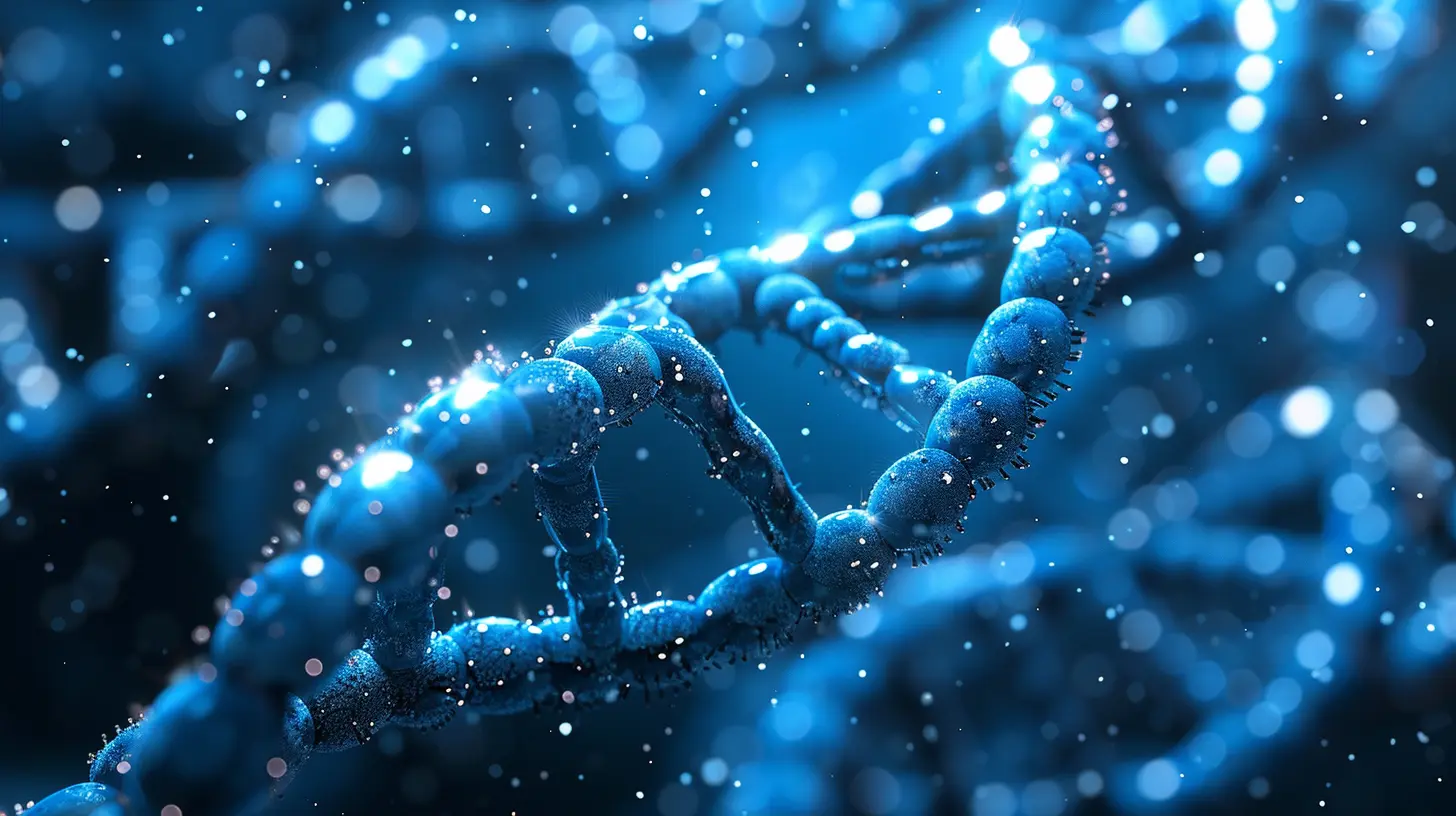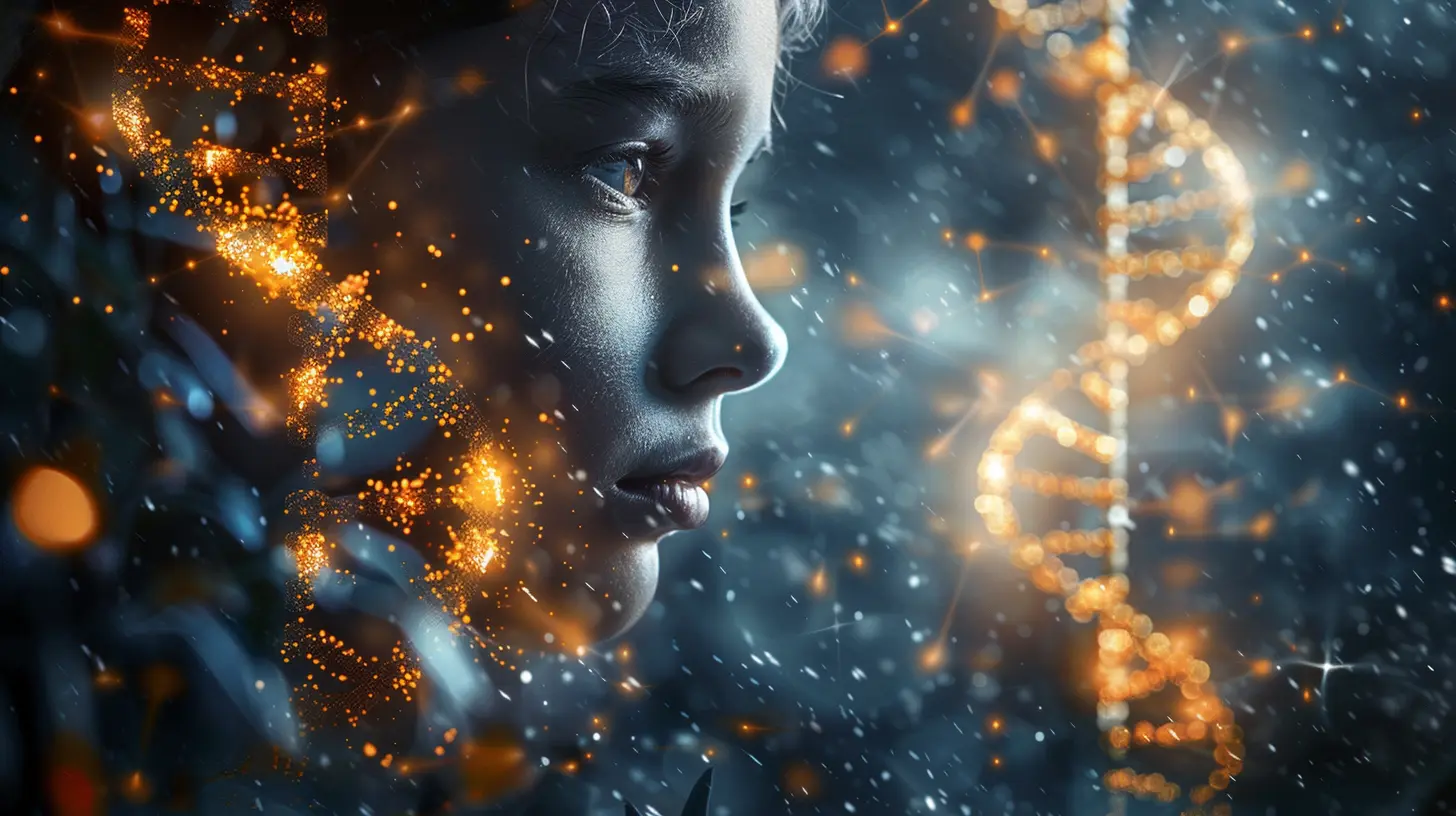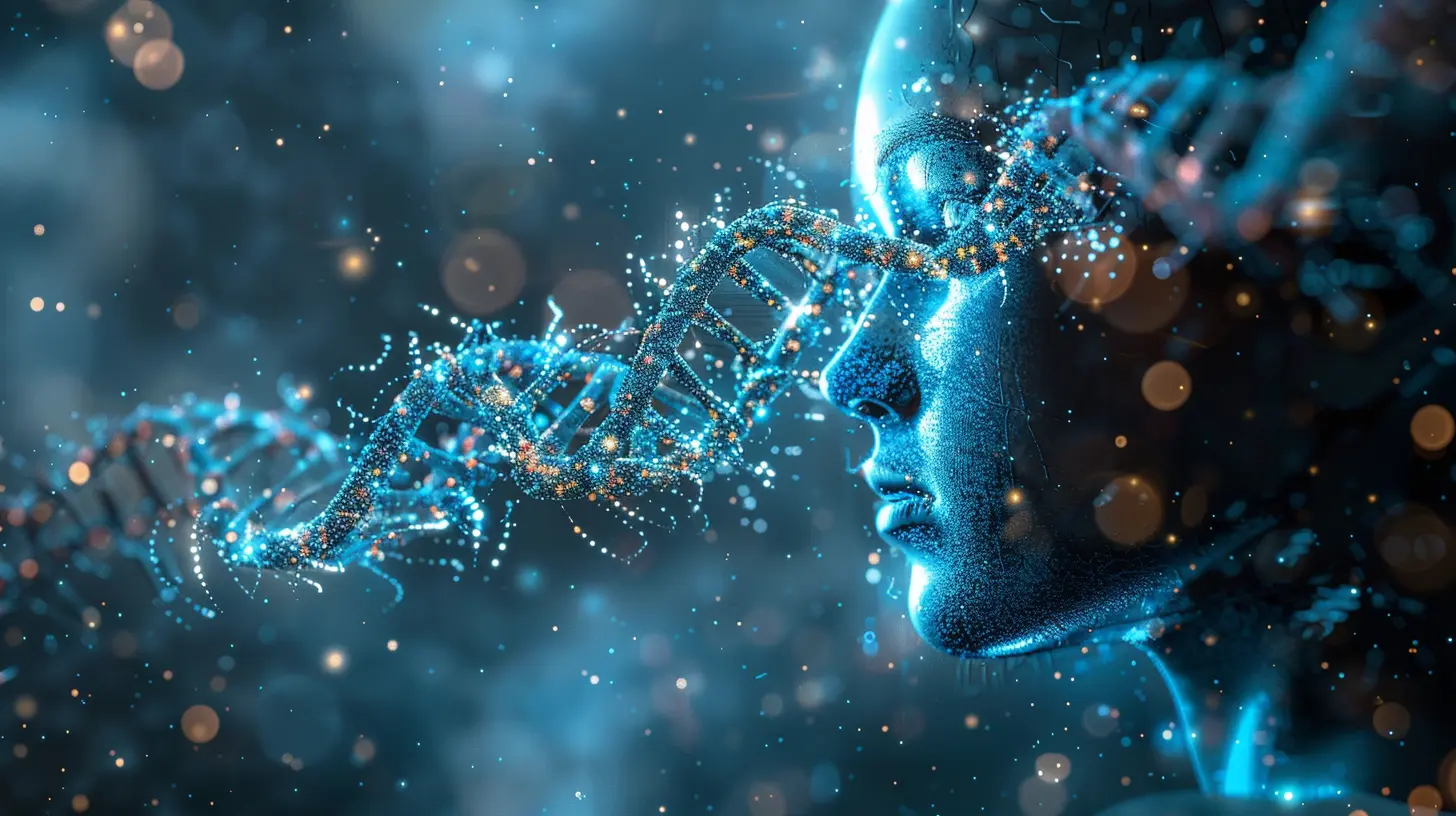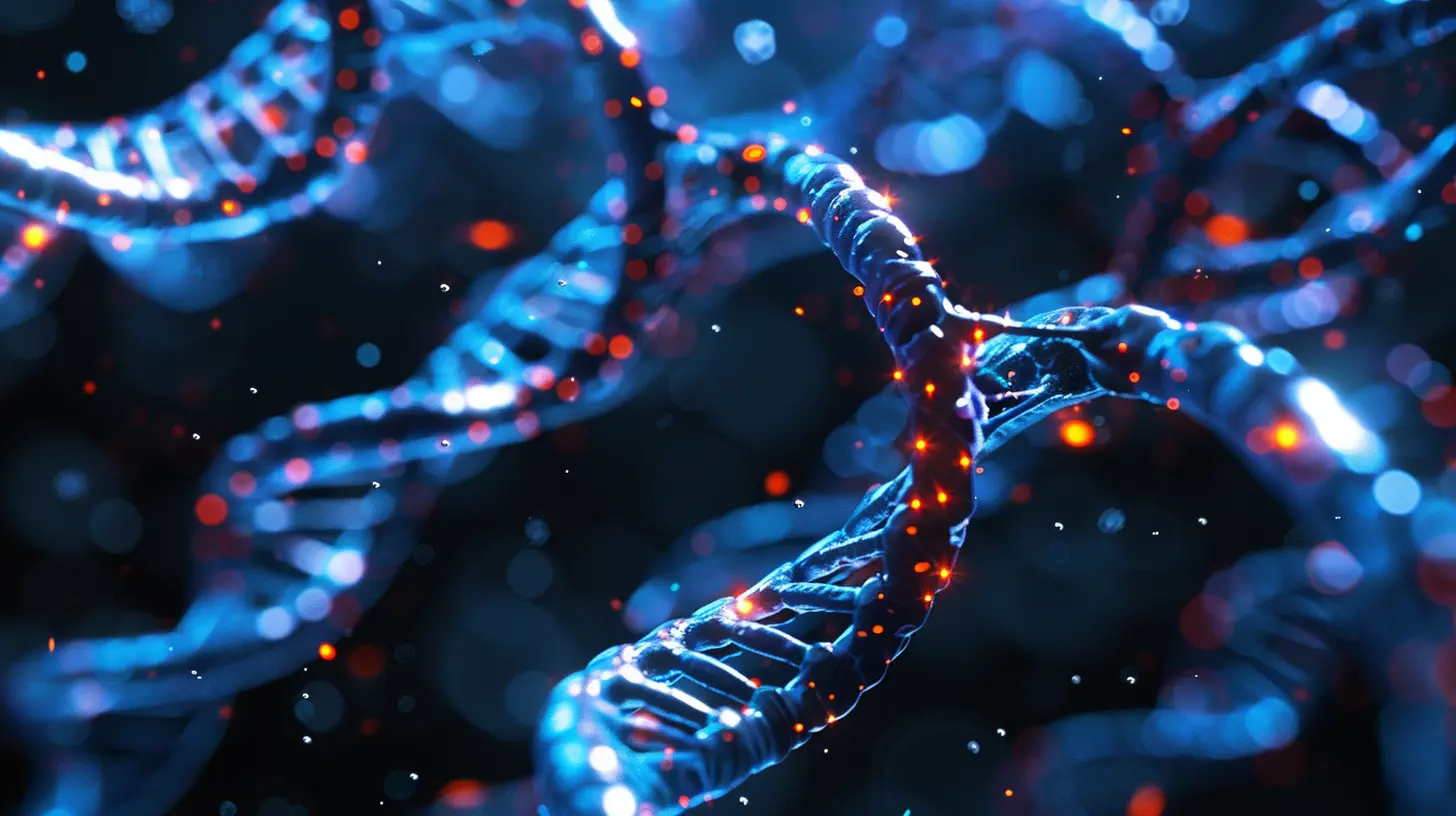The Influence of Genetics in Autism Spectrum Disorder
9 May 2025
Autism Spectrum Disorder (ASD) has long been a subject of fascination and debate. What causes it? Is it something a child is born with, or does it develop over time? While environmental factors certainly play a role, genetics seem to be a significant piece of the puzzle.
Let’s delve into the intricate world of DNA, inheritance, and how our genes contribute to ASD.

Understanding Autism Spectrum Disorder
Before we dive into genetics, let’s clarify what ASD actually is. Autism is a neurodevelopmental condition that affects communication, social interaction, and behavior. It’s called a "spectrum" because it varies widely from person to person—some individuals may struggle with verbal communication, while others may have highly specialized skills in certain areas.But here’s the big question: Why do some people develop autism while others don’t? The answer lies, at least in part, within our genetic code.

The Genetic Link: Is Autism Inherited?
One of the strongest indicators that autism has a genetic basis is its tendency to run in families. If one child in a family has ASD, the chances of another sibling being diagnosed are significantly higher than in the general population.Twin Studies: The Genetic Blueprint
Twin studies have been monumental in understanding autism’s genetic influence. Identical twins share 100% of their DNA, while fraternal twins share about 50%. Research shows that if one identical twin has autism, the other has a 60-90% chance of also being on the spectrum. In fraternal twins, this number drops to 10-30%. That’s a pretty strong argument in favor of a genetic component, right?Family History: A Genetic Trail
If parents have a history of autism or other neurodevelopmental conditions, their children are at a higher risk. Additionally, first-degree relatives (siblings, parents) of an autistic person often exhibit mild autistic traits, even if they don’t meet the full diagnosis.But what’s actually happening at the genetic level? Let’s dig deeper.

Genes Involved in Autism
Autism isn’t caused by a single gene—it’s influenced by multiple ones. Researchers have identified hundreds of genes associated with ASD, though no one gene guarantees a diagnosis.Gene Mutations and Variants
Sometimes, small changes in our DNA—called mutations—can increase the chances of autism. Some of the most studied genes that have been linked to ASD include:- SHANK3: Plays a role in brain synapses (connections between neurons).
- CHD8: Involved in brain development and linked to larger head size in some autistic individuals.
- SCN2A: Affects brain signaling and has been associated with both autism and epilepsy.
- NRXN1 and NLGN3/NLGN4: Crucial for neuron connections, playing a key part in brain communication.
These genes don’t work in isolation—rather, they interact in complex ways to shape an individual’s neurological makeup.
De Novo Mutations
Genetics isn’t always about inheritance. Some mutations appear spontaneously in a child’s DNA but are not present in their parents. These are known as de novo mutations. Studies have shown that these spontaneous mutations can significantly contribute to ASD, particularly in severe cases.
The Role of Genetic Syndromes
Some known genetic disorders have a high prevalence of autism, further cementing the genetic link. These include:- Fragile X Syndrome – A genetic condition that often causes intellectual disabilities and ASD-like symptoms.
- Rett Syndrome – A rare disorder primarily affecting girls, leading to developmental regression and autism traits.
- Tuberous Sclerosis Complex – A condition that leads to benign tumors in the brain, with many affected individuals also having autism.
These genetic conditions offer researchers valuable clues about how certain genes influence autism.
Genetics vs. Environment: A Complex Relationship
While autism has a strong genetic foundation, it’s not entirely written in the DNA. Environmental factors also play a role in influencing whether someone develops ASD.Prenatal Factors
Certain prenatal conditions can increase the risk of autism, including:- Advanced parental age (especially the father's age)
- Maternal infections during pregnancy
- Exposure to toxins or pollutants
- Complications at birth, such as low birth weight or oxygen deprivation
While these factors don’t cause autism directly, they may interact with genetic predispositions to increase the likelihood of developing the condition.
The Future of Autism Research
With technology advancing rapidly, scientists are beginning to unlock the complexities of autism genetics like never before.Genetic Testing: A Double-Edged Sword?
Genetic testing is being used to help identify mutations linked to ASD, potentially aiding early diagnosis and intervention. However, autism is such a varied and complex condition that genetic testing alone isn’t enough to make predictions.Gene Therapy: A Possibility?
Could gene therapy one day "treat" autism? While this is a heavily debated topic, some researchers are exploring whether modifying certain genetic factors could alleviate severe symptoms. However, since autism is not a disease but a different way of brain functioning, ethical concerns must also be considered.Wrapping It Up
So, is autism genetic? The overwhelming evidence suggests a strong genetic influence, though it doesn't act alone—environmental factors also play a role. While we don’t yet have all the answers, science is moving closer to unraveling the complexities of ASD.Understanding the genetic foundations of autism can pave the way for earlier diagnoses, better support, and more targeted interventions. And while autism comes with challenges, it also brings unique strengths and perspectives that enrich our world.
all images in this post were generated using AI tools
Category:
AutismAuthor:

Paulina Sanders
Discussion
rate this article
3 comments
Raina Kline
Who knew our genes could be such little influencers? Next time I trip over my shoelaces, I’ll blame it on my DNA!
May 18, 2025 at 2:29 AM

Paulina Sanders
Thank you for your comment! Genetics indeed play a significant role in many behaviors, including those related to autism spectrum disorder.
Chloe McTavish
Great article! It highlights the complex interplay between genetics and environmental factors in autism. Understanding this relationship can enhance support and interventions for individuals on the spectrum.
May 15, 2025 at 4:14 PM

Paulina Sanders
Thank you for your thoughtful feedback! I'm glad you found the article insightful. Understanding this interplay is crucial for improving support for individuals with autism.
Zealot Cain
This article offers valuable insights into the genetic factors contributing to Autism Spectrum Disorder. Understanding the genetic influences can enhance awareness and support for individuals on the spectrum, encouraging a more informed approach to treatment and acceptance within society. A crucial perspective in the ongoing conversation about autism.
May 12, 2025 at 3:49 AM

Paulina Sanders
Thank you for your thoughtful comment! I'm glad you found the insights valuable for fostering awareness and understanding of autism spectrum disorder.



